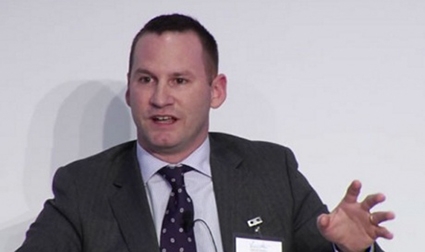No Need for MAP, Possible Game Changer for NATO and Georgia?
A head of the NATO Warsaw summit, a question hangs over us: What can Georgia expect this time? From the looks of it, Georgia will get yet another half-hearted nod and reluctant acknowledgment that the door is still open, though barriers obviously remain. Georgia’s quest for a Membership Action Plan (MAP) has become akin to the sufferings of mythical Tantalus, yet some think that there might be a Gordian Knot-esque (pun intended) solution to the problem. Luke Coffey of the Heritage Foundation certainly seems to share this belief, as demonstrated by his interview with Voice of America Georgian Service.
Luke Coffey: “Georgia is a country that has done a lot to prepare for the NATO Summit, it has probably done more than any other NATO member, just because it is a very enthusiastic country, a country that wants to be a part of the Euro Atlantic community; a country that wants to be a member of NATO, and it is doing everything to reach that goal. At the Summit itself, it is very important that the right signals are sent out to the people of Georgia. Georgian people have been very patient over the years, and while Georgia has done a lot to join the Alliance, there is more work to be done. I think NATO should show a true commitment to Georgia, and this can be done by extending the Georgia-NATO meeting at the Heads of State level, or by stating that MAP is not a requirement to join the Alliance. These will send the right signals, not only to the people of Georgia but also to Russia that NATO is committed to bringing Georgia into the Alliance.
What remains for Georgia to do? Reforms in the Armed Forces, international relations and domestic politics? Human rights..?
I’d say it’s a bit of everything and this is no bad thing. Transformation and reforms- these are a process. Ongoing issues are nothing strange even for countries already in NATO. For Georgia, I would say that the upcoming elections need to be peaceful; there needs to be a peaceful transfer of power- however that might play out. There is the perception that the domestic political scene in Georgia is so fragmented and divided, sometimes aggressive, too, and there are some legitimate concerns in the West as to why this country is having some of these problems. Exacerbating this problem is Russian propaganda, Russia’s financing of domestic groups and NGOs, and this is making the situation so much worse. As such, Georgia is not ready to join the Alliance tomorrow but it certainly will in due course.
How do you see the US and other Western countries helping Georgia on this path?
We need to send the right political signals that the West is committed to Georgia joining the Alliance. We need to help Georgia transform and improve its Armed Forces; transform and improve its economy and rule of law; and it’s in our interests to have a stable and peaceful Georgia in the South Caucasus, and a transatlantic community.
How would you characterize Defense Minister Khidasheli’s latest visit and what value does it bring to the bilateral defense partnership?
Without a doubt, Georgia’s number one military partnership is with the United States. So it’s important that the Minister comes and speaks to her counterparts and the policy community. She did a great job here, she is a great advocate for Georgia in Washington and Europe- Georgian people should be very proud of the job she has done to help promote Georgia goals. Leading up to the NATO summit, what she’s doing is especially important. The US policy community is finally focused on Russia’s aggression and the question of NATO’s enlargement during the Summit- these issues are finally back on the table and she has been a part of these discussions.
By Anna Kalandadze, Voice of America Georgian service












